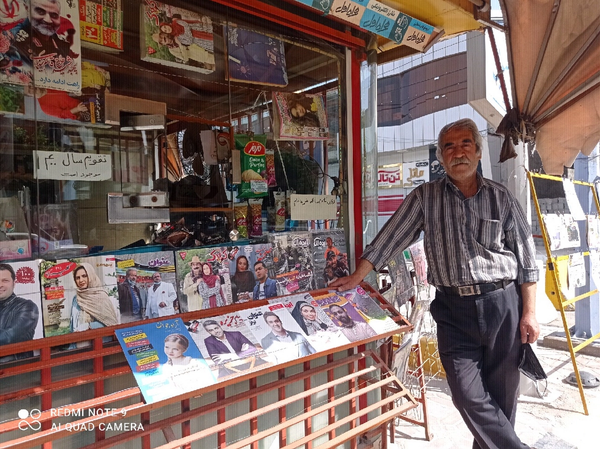Journalists in Iran say their salaries are not enough for their living expenses, and even if they are paid on time, it only covers basic expenses for half of the month.
Iran international conducted interviews with more than 20 journalists in various cities who work for newspapers or news agencies.
According to the interviewees, the average salaries of journalists in provinces like Esfahan, Khorasan Razavi, Gilan, West Azerbaijan and Sistan-Baluchistan range from 40 to 60 million rials ($80-120) a month.
This means that journalists get paid less than the minimum wage, which the government this year increased to above 70 million rials ($140).
A Journalist in Khorasan Razavi province in northeast, emphasizing the living difficulties for journalists said, "Salaries in some Telegram channels like Akbar Mashhad start from 7 million rials ($14) and may reach 4 million ($80) a month, like other journalist in our province. Of course, editors may receive between 100 and 120 million rials ($200-220)."
According to a report by the Parliamentary Research Centre published this month the number of Iranian below the poverty line increased from 19 percent to over 30 percent in the past decade. In fact, more than 30 percent of Iran's populations lives below the poverty line. Some experts say that nearly half the population is now below the poverty line, which is defined as having an income of less than around $200 a month. Many journalists are also among the people living below the poverty line.
Journalists in Esfahan emphasized that their salaries have been paid with delays in the past year, and in some cases, they have been divided into instalments. They said, "A salary of 5.3 million rials ($105) is practically meaningless considering rising inflation and the high cost of living. There is no institution or syndicate to file a complaint with, and any protest is met with reprimands and dismissals."
Although the government claims annual inflation is at 40 percent, economists and some lawmakers believe it is closer to 70 percent. Food price inflation is estimated to be between 70-120 percent since May 2022.
A reporter from one of the news agencies in Tehran also said: "On paper, I receive around 80 million rials ($160) as my monthly salary, but due to various deductions, I end up with something close to 77 million. It's clear that with such a salary, it's impossible to live in Tehran. Depending on my shift, I do some extra work before or after my job as a driver. Once, I gave a ride to someone I had interviewed weeks earlier. The person was shocked that I was driving a taxi and repeatedly asked if I wanted to write an article about why I had to do a second job."
A reporter from one of the newspapers in Tehran told us, "I had left my parents’ home and lived alone, but my financial situation became so difficult that I had to return and live with them, however, not everyone has this option. We are barely making ends meet. I made around 100 million rials a month, but still, my income and expenses did not balance out."
Increasing censorship
The economic problem is not the only challenge facing journalists in Iran. They are daily confronted with various newly imposed restrictions. One journalist spoke about the pressures and new limitations, saying, "Reporting has become like the fluctuating dollar rate, they keep setting momentary red lines for us."
He added: "It is possible that yesterday an agreed upon report was allowed to be published, but the next day, the editors and chief editors, or the managing director say that the report should not be printed. To make our conscience suffer even more, they say, 'Are you willing to take the responsibility for others losing their jobs [if the news outlet is shut down]?’ “
During months of anti-government protests that began last September, dozens of journalists were detained, some simply for a tweet or as a preventive measure. Two reporters who broke the news about Mahsa Amini, whose death in the custody of hijab police sparked the protests, are still in jail.
A reporter from one of the news agencies in Tehran stated: "Limitations on writing news depending on the country's situation have always existed. For example, we were not allowed to cover the Haft Tappeh workers' strike for a while, and later the choice of words was completely controlled. But during the protests since September 2022, these limitations have doubled."
This reporter went on to say, "After being shocked by the killing of Kian [a 10-year-old boy shot by security forces during protests], I posted a story on my personal page. In less than 24 hours, I received a call from an unknown number, and in a harsh tone, they told me to delete the story and warned that if it happened again, they would fire me from the newspaper."
Another journalist who was recently interrogated by security forces described the dangers inherent in censorship. "We used to know what words to use and what words were prohibited, or at least we followed the criteria according to directives from the Supreme National Security Council. But after the killing of Mahsa, the conditions drastically changed, and they began to apply all sorts of pressures to restrict independent journalists. They us no to do our professional work effectively, but…we take pride in our profession and stand with the people as long as we can."
